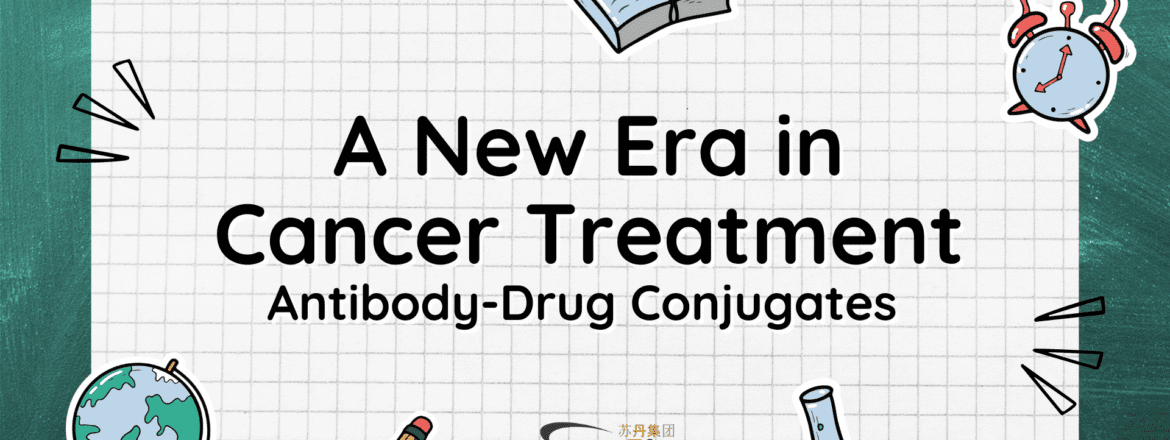Antibody-Drug Conjugates: A Revolutionary Approach to Cancer Treatment
Outline
Introduction to Antibody-Drug Conjugates (ADCs)
- Definition and Overview
- Importance in Cancer Treatment
Components of ADCs
- Antibody
- Linker
- Cytotoxic Drug
Mechanism of Action of ADCs
- Targeting and Binding
- Internalization
- Drug Release and Cell Death
Advantages of ADCs Over Traditional Chemotherapy
- Targeted Delivery
- Increased Potency
- Reduced Dosage
- Improved Patient Outcomes
Current ADCs Approved for Clinical Use
- Adcetris (Brentuximab Vedotin)
- Kadcyla (Ado-Trastuzumab Emtansine)
- Mylotarg (Gemtuzumab Ozogamicin)
- Enhertu (Trastuzumab Deruxtecan)
ADCs in Clinical Trials
- Overview of Ongoing Research
- Potential Future Applications
Challenges in ADC Development
- Resistance
- Stability and Specificity
Future Directions in ADC Research
- Antibody Engineering
- Linker Chemistry
- New Cytotoxic Agents
- Combination Therapies
Case Studies of Successful ADC Treatments
- Patient Success Stories
- Clinical Outcomes
Comparison Between ADCs and Other Targeted Therapies
- ADCs vs. Monoclonal Antibodies
- ADCs vs. Small Molecule Inhibitors
Impact of ADCs on Quality of Life
- Reduced Side Effects
- Enhanced Recovery
Cost and Accessibility of ADCs
- Current Costs
- Insurance and Reimbursement Issues
Patient Perspectives on ADC Treatment
- Testimonials
- Common Concerns
Healthcare Provider Insights on ADCs
- Oncologist Views
- Pharmacist Perspectives
Conclusion
FAQs
- What is an antibody-drug conjugate?
- What is the difference between chemotherapy and ADC?
- What is the mechanism of ADC?
- What is an ADC for cancer?
Introduction:
Cancer remains one of the most formidable challenges in modern medicine. Traditional treatments, while effective, often come with a host of debilitating side effects. Enter Antibody-Drug Conjugates (ADCs), a groundbreaking approach that promises to change the landscape of cancer therapy. In this detailed guide, we’ll explore what ADCs are, how they work, and why they represent such an exciting advancement in oncology.
Introduction to Antibody-Drug Conjugates (ADCs)
Definition and Overview
ADCs are an innovative class of therapeutic agents designed to treat cancer more precisely and effectively. They combine the targeting capabilities of antibodies with the powerful cell-killing abilities of cytotoxic drugs. This unique combination allows ADCs to hone in on cancer cells, delivering their lethal payload directly where it’s needed, thereby sparing healthy tissues.
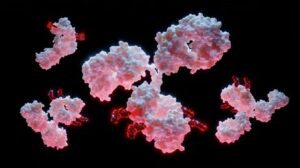

Importance in Cancer Treatment
The significance of ADCs lies in their ability to target and destroy cancer cells with minimal collateral damage. This targeted approach not only enhances the efficacy of the treatment but also significantly reduces the adverse side effects commonly associated with traditional chemotherapy.
Components of ADCs
Understanding ADCs requires a look at their three main components: the antibody, the linker, and the cytotoxic drug.
Antibody
The antibody in an ADC is a protein engineered to bind specifically to an antigen found on cancer cells. This targeting mechanism ensures that the ADC attaches only to cancer cells, providing precision in treatment.
Linker
The linker is a chemical bridge that connects the antibody to the cytotoxic drug. It’s designed to be stable in the bloodstream but to release the drug once the ADC has entered the cancer cell.
Cytotoxic Drug
This is the component that kills the cancer cell. Cytotoxic drugs used in ADCs are extremely potent, often far more so than traditional chemotherapy drugs, making them highly effective in small doses.
Mechanism of Action of ADCs
Targeting and Binding
ADCs start by circulating through the bloodstream until the antibody component binds to its specific antigen on a cancer cell.
Internalization
Once bound, the ADC is internalized by the cancer cell through a process called endocytosis, effectively bringing the cytotoxic drug inside the cell.
Drug Release and Cell Death
Inside the cancer cell, the linker is cleaved, releasing the cytotoxic drug. The drug then exerts its toxic effects, leading to the death of the cancer cell.
Advantages of ADCs Over Traditional Chemotherapy
Targeted Delivery
One of the main advantages of ADCs is their targeted delivery. By honing in on cancer cells, ADCs minimize damage to healthy cells, resulting in fewer side effects.
Increased Potency
The cytotoxic drugs used in ADCs are highly potent. Delivered directly to cancer cells, these drugs can be used in lower doses compared to traditional chemotherapy, enhancing their effectiveness.
Reduced Dosage
Because of their targeted nature, ADCs often require lower overall dosages. This reduces the risk of systemic toxicity and improves patient tolerance to the treatment.
Improved Patient Outcomes
With fewer side effects and higher efficacy, ADCs can lead to better overall outcomes for patients. This includes not only improved survival rates but also a better quality of life during treatment.
Current ADCs Approved for Clinical Use
Several ADCs have already received approval for clinical use, demonstrating their potential in cancer therapy.
Adcetris (Brentuximab Vedotin)
Approved for the treatment of Hodgkin lymphoma and systemic anaplastic large cell lymphoma, Adcetris targets the CD30 antigen on cancer cells.
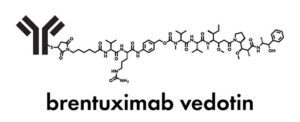

Kadcyla (Ado-Trastuzumab Emtansine)
Kadcyla is used to treat HER2-positive metastatic breast cancer. It combines the HER2-targeting antibody trastuzumab with the cytotoxic drug emtansine.
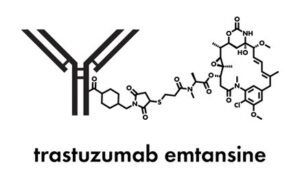

Mylotarg (Gemtuzumab Ozogamicin)
Mylotarg targets CD33 and is approved for the treatment of acute myeloid leukemia (AML).
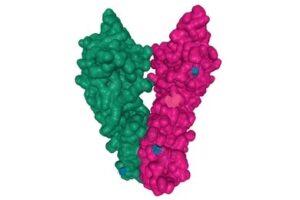

Enhertu (Trastuzumab Deruxtecan)
Enhertu is another HER2-targeted ADC, approved for the treatment of HER2-positive breast cancer.
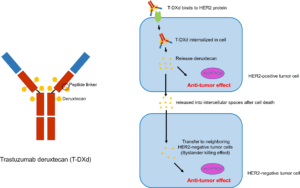

ADCs in Clinical Trials
Overview of Ongoing Research
Numerous ADCs are currently in various stages of clinical trials, targeting a wide array of cancers. These trials are crucial for assessing the safety, efficacy, and potential applications of new ADCs.
Potential Future Applications
Researchers are exploring the use of ADCs beyond traditional cancer types, including solid tumors and hematologic malignancies. The goal is to expand the reach of ADCs to benefit more patients.
Challenges in ADC Development
Resistance
One of the biggest challenges in ADC development is resistance. Cancer cells can mutate and stop expressing the target antigen, rendering the ADC ineffective.
Stability and Specificity
Ensuring that the linker is stable in the bloodstream but releases the drug within the cancer cell is critical. Additionally, the antibody must be highly specific to avoid off-target effects.
Future Directions in ADC Research
Antibody Engineering
Advances in antibody engineering aim to create more specific and potent antibodies, enhancing the targeting capabilities of ADCs.
Linker Chemistry
Improving linker chemistry is essential for ensuring that the drug is released at the right time and place, maximizing its therapeutic effect.
New Cytotoxic Agents
Developing new cytotoxic agents that are effective at killing cancer cells with minimal doses is another key area of research.
Combination Therapies
Combining ADCs with other treatment modalities, such as immunotherapy and targeted therapies, may enhance their efficacy and overcome resistance.
Case Studies of Successful ADC Treatments
Patient Success Stories
There are numerous success stories where ADCs have significantly improved patient outcomes, showcasing their potential in real-world scenarios.
Clinical Outcomes
Clinical trials have shown that ADCs can lead to remission in patients who have not responded to other treatments, highlighting their effectiveness.
Comparison Between ADCs and Other Targeted Therapies
ADCs vs. Monoclonal Antibodies
While monoclonal antibodies can target cancer cells, they lack the cytotoxic component of ADCs, making ADCs potentially more effective.
ADCs vs. Small Molecule Inhibitors
Small molecule inhibitors can target cancer cells but often come with systemic side effects. ADCs, with their targeted approach, offer a more precise treatment option.
Impact of ADCs on Quality of Life
Reduced Side Effects
The targeted nature of ADCs leads to fewer side effects, improving patients’ quality of life during treatment.
Enhanced Recovery
Patients treated with ADCs often experience faster recovery times and less overall disruption to their daily lives.
Cost and Accessibility of ADCs
Current Costs
ADCs can be expensive, which may limit their accessibility. However, ongoing research and production advancements may help reduce costs over time.
Insurance and Reimbursement Issues
Navigating insurance and reimbursement can be challenging, but many ADCs are covered by health insurance plans, especially for patients with specific types of cancer.
Patient Perspectives on ADC Treatment
Testimonials
Patients have reported positive experiences with ADC treatments, noting the reduced side effects and improved efficacy compared to traditional therapies.
Common Concerns
Concerns often revolve around the cost and accessibility of ADCs, as well as potential resistance and the need for combination therapies.
Healthcare Provider Insights on ADCs
Oncologist Views
Oncologists are optimistic about the potential of ADCs, particularly for patients who have exhausted other treatment options.
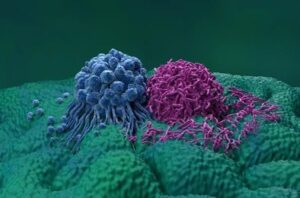

Pharmacist Perspectives
Pharmacists emphasize the importance of proper administration and monitoring of ADCs to ensure their effectiveness and safety.
Conclusion:
Antibody-Drug Conjugates (ADCs) represent a significant advancement in cancer therapy, offering a targeted and potent treatment option that minimizes damage to healthy cells. With several ADCs already approved and many more in clinical trials, the future of cancer treatment looks promising. Ongoing research and innovation in this field are expected to further improve the efficacy and safety of ADCs, ultimately leading to better outcomes for cancer patients.
FAQs
What is an antibody-drug conjugate?
An antibody-drug conjugate (ADC) is a targeted cancer therapy that combines an antibody specific to cancer cell antigens with a cytotoxic drug. The antibody binds to the cancer cell, and the drug is released to kill the cell.
What is the difference between chemotherapy and ADC?
Traditional chemotherapy involves administering cytotoxic drugs that kill rapidly dividing cells, including healthy cells, leading to significant side effects. ADCs deliver the cytotoxic drug specifically to cancer cells, reducing damage to healthy cells and minimizing side effects.
What is the mechanism of ADC?
ADCs work by binding to specific antigens on cancer cells through their antibody component. The ADC is then internalized, and the cytotoxic drug is released inside the cell, leading to cell death.
What is an ADC for cancer?
An ADC for cancer is a targeted therapy that uses an antibody to deliver a cytotoxic drug specifically to cancer cells. This approach enhances the efficacy of the drug while reducing side effects, making it a promising option for cancer treatment.
Sultan Group: Your Trusted Partner in Chemical Supply
At Sultan Group, we are committed to providing high-quality cyclophenylacetic acid and a wide array of other acids to meet your research and industrial needs. Our extensive catalog also includes Molecular Biology Products & Reagents, ELISA Kits, Chemicals & Enzymes, and Microbiology & Cell Lines.
Why Choose Sultan Group?
- Comprehensive Product Range: From cyclophenylacetic acid to specialized reagents, we offer a complete solution for your scientific and industrial requirements.
- Global Reach: Operating in over 108 countries, we ensure seamless sourcing and delivery of products to your doorstep.
- Expert Support: Our team of experts is always ready to assist you with product selection and technical support, ensuring you get the best results.
Visit us at www.sultangroup.org/our-services to learn more about our offerings and how we can support your scientific and industrial endeavors.
With Sultan Group, you can focus on your core operations while we handle your sourcing and logistics needs. Trust us to provide the high-quality chemicals and supplies that drive innovation and success in your projects.


